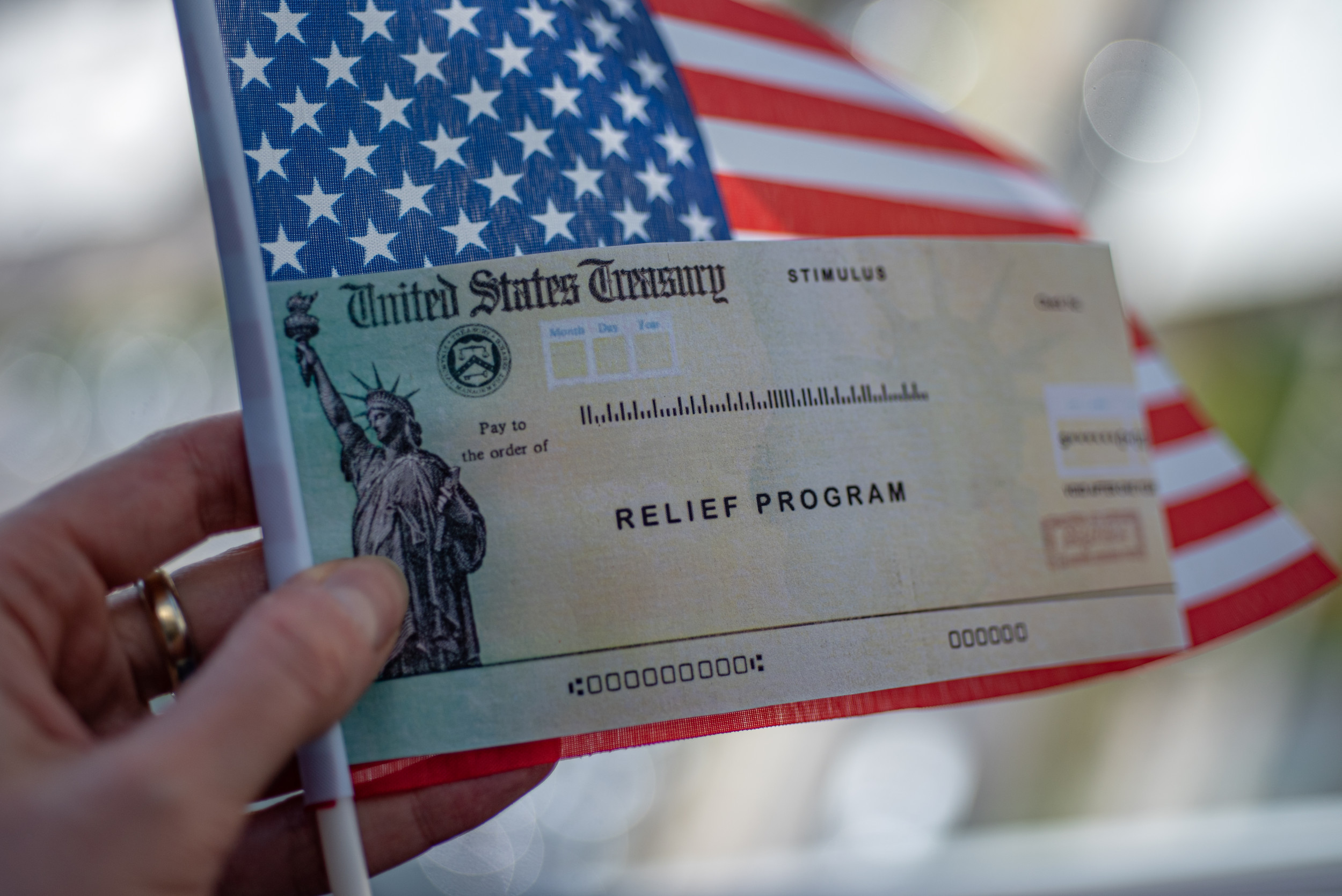
President Donald Trump‘s tariff agenda could be used to provide stimulus checks to Americans, one Republican lawmaker has proposed—though the idea has failed to inspire some of his fellow Republicans.
Shortly into his second term in the White House, Trump announced that he would increase levies on international goods being brought into the U.S. to usher in a “golden age of America” and correct trade imbalances. These tariffs are paid by U.S. companies that bring goods into the country from abroad.
Senator Josh Hawley, a Republican from Missouri, has proposed using the revenue from tariffs to provide direct payments to millions of Americans. According to Hawley, so far in 2025, tariffs have generated more than $100 billion for the U.S.
Newsweek has contacted Hawley’s office for comment via email outside regular working hours.
What Is the American Worker Rebate Act of 2025?
In late July, Hawley introduced the American Worker Rebate Act, a proposal that would channel revenue from tariffs into direct payments for Americans. Under the plan, workers and families would receive a rebate check, modeled on the direct payments issued by Congress in 2020 during the pandemic. According to Hawley’s office, the minimum payment would be $600 for each adult and dependent—so $2,400 for a family of four—with the potential for larger sums if tariff revenues grow.
“Americans deserve a tax rebate after four years of Biden policies that have devastated families’ savings and livelihoods,” Hawley said in a news release on July 28. “Like President Trump proposed, my legislation would allow hard-working Americans to benefit from the wealth that Trump’s tariffs are returning to this country.”
GETTY
Mixed Opinions
Lawmakers have weighed in on the proposal, with Republicans saying the national debt—currently sitting at more than $37 trillion—makes the idea a no-go.
Senator Rand Paul of Kentucky said that given the size of the debt, such an idea was “ridiculous.”
“We’re gonna basically borrow money to send it to the American people? There is no rebate if there’s no money,” Paul said. “I mean, it’s the dumbest idea I’ve ever heard.”
Describing the idea as “insane,” Senator Bernie Moreno of Ohio cited the debt and said the move would be “extraordinarily inflationary.”
“I just don’t know that they’re necessary. The folks back home don’t feel like they’re being hurt by tariffs, just the opposite. Prices have stabilized,” Senator Roger Marshall of Kansas said, adding, “Pay down the debt.”
Other Republicans have expressed slightly more openness to the idea, but not before the country’s dues are driven down.
“Well, when we have a surplus, I’d be all for it,” said Senator Ron Johnson of Wisconsin. “But we’re $37 trillion in debt, running a deficit that’s about $2 trillion as far as the eye can see. I would oppose it.”
One key supporter of the idea is the president, who told reporters in July: “The big thing we want to do is pay down debt, but we’re thinking about a rebate. We have so much money coming in from tariffs that a little rebate for people of a certain income level might be really nice.”
The American Worker Rebate Act would need to pass the Senate to become law.
The U.S. and Stimulus Checks
Stimulus checks, while not all that common, have provided financial boosts for Americans in recent years. They tend to pop up during times of economic crisis, such as the coronavirus pandemic, when direct payments were sent to about 85 percent of Americans during the tail end of the first Trump administration and the beginning of Joe Biden‘s presidency.
Trump has also previously criticized stimulus checks, saying COVID-19 checks “caused the worst inflation in American history.”
However, that hasn’t stopped him from backing other stimulus check calls. Earlier this year, proponents of a “DOGE Dividend” suggested distributing federal savings generated by the Department of Government Efficiency to American taxpayers. While it was a significant talking point in the spring, the idea has not become policy.
